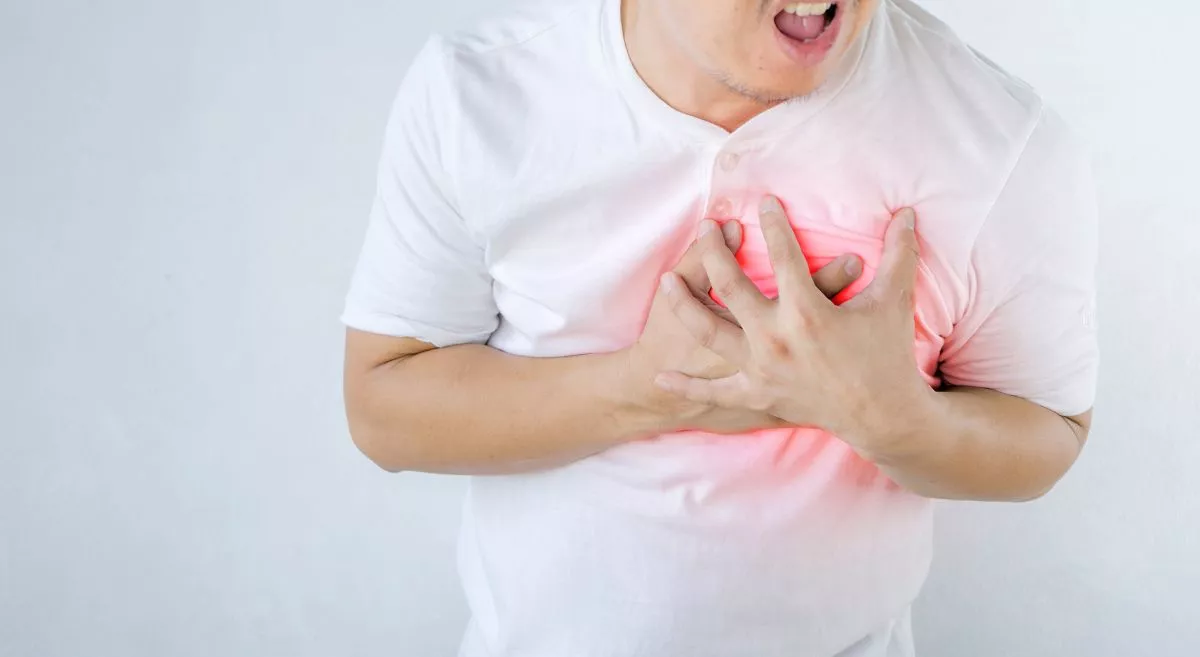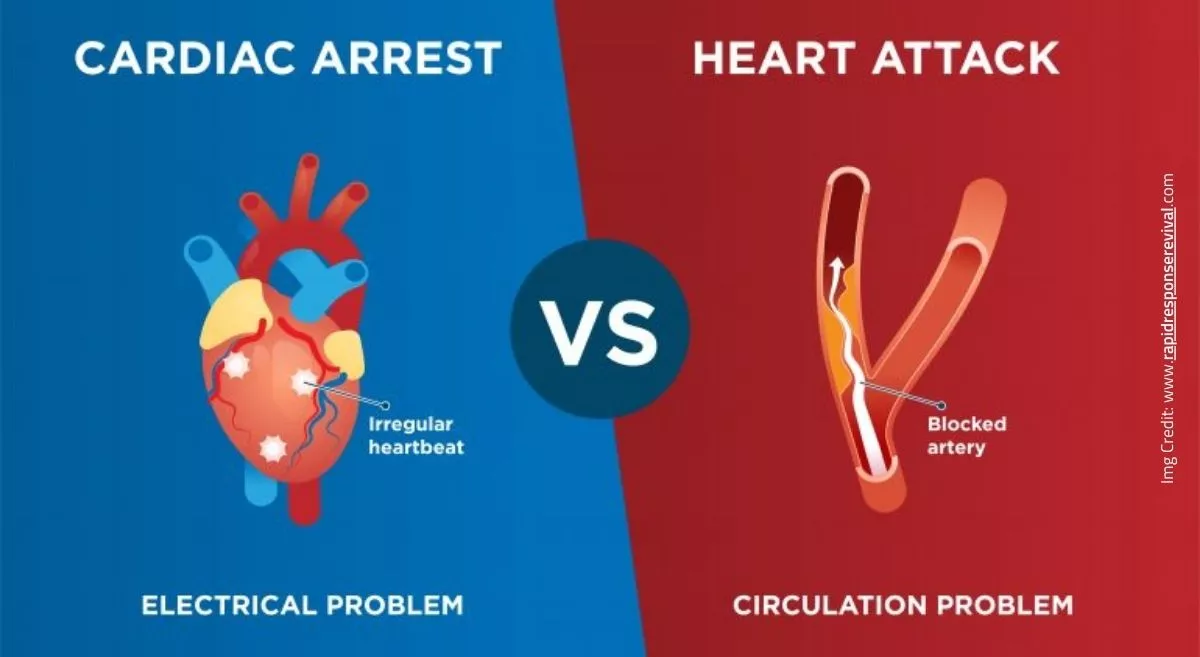Heart pain can be frightening to endure. Sometimes it can be sore like a dull ache, or stinging like pain, while sometimes you feel like your chest is tight. This is where we expect people to wake up and realize that sweating and chest pain don’t necessarily mean one is having a heart attack. This pain can be the result of numerous physical and emotional problems and learning about them will allow you to control the pain successfully.
Through this blog, the potential causes of heart pain have been discussed, including the signs, potential causes of risk, symptoms, possible treatments for heart pain, and its prevention.
What Is Heart Pain?
There are several conditions that can cause chest discomfort. It can be due to actual heart disease or simply because of other diseases in the chest cavity, including muscles, lungs, nerves, or even the digestive system. Heart pain can be categorized into two main types:
- Physical Heart Pain: This type is directly linked with situations that concern the cardiovascular system, lungs, and blood vessels.
- Emotional Heart Pain: This can be accompanied by emotions like stress, anxiety, or grief and manifest as physical pain.
Visiting a reputed cardiology hospital in Bangalore can help you determine whether your chest discomfort is heart-related or caused by another condition.
Physical Causes of Heart Pain
- Heart-Related Conditions:
Angina: Angina is a type of chest pain caused by reduced blood flow to the heart muscle. It often feels like pressure or squeezing in the chest and can be triggered by physical activity, emotional stress, or extreme temperatures. Angina usually improves with rest or medication but should be evaluated by a doctor.
Heart Attack: A heart attack occurs when blood flow to the heart is blocked, often by a blood clot. This can cause severe pain in the chest that may radiate to the arms, back, neck, or jaw. Other symptoms include sweating, shortness of breath, and nausea. A heart attack requires immediate medical attention and you should consider visiting a trusted heart hospital in Bangalore for emergency care.
Pericarditis: This condition involves inflammation of the pericardium, the protective sac surrounding the heart. It can cause sharp chest pain that worsens with deep breaths or lying down. Causes may include viral infections, autoimmune diseases, or chest injuries.
- Myocarditis: Myocarditis is inflammation of the heart muscle, usually due to viral infections or autoimmune disorders. Symptoms include chest pain, fatigue, and in severe cases, heart failure.
- Gastrointestinal Causes:
- Gastroesophageal Reflux Disease (GERD): Often called acid reflux, GERD occurs when stomach acid flows back into the esophagus. This can create a burning sensation in the chest known as heartburn, which can be mistaken for heart pain. Symptoms often worsen after meals or when lying down.
- Hiatal Hernia: A hiatal hernia happens when part of the stomach bulges through the diaphragm into the chest cavity. This can lead to chest pain and discomfort, along with bloating and difficulty swallowing.
- Muscle and Bone Disorders
- Costochondritis: This condition involves inflammation of the cartilage connecting the ribs to the breastbone. It can result in sharp chest pain that is often confused with heart-related discomfort.
- Muscle Strain: Overexertion or heavy lifting can strain chest muscles, leading to localized pain. This pain may feel similar to heart pain but is not related to the heart itself.
Emotional Causes of Heart Pain
Emotional distress can also present itself as chest pain. Common emotional causes include:
- Anxiety and Stress: Stress or anxiety can cause physical signs such as chest discomfort and tightness. The body's stress response can produce feelings like heart pain.
- Grief and Sadness: Suffering a major loss result in emotional suffering that can be felt physically. This may produce a feeling of oppression in the chest, which people often refer to as a broken heart.
What are the symptoms of heart pain?
It is important to know what signs are related to heart pain so that one can know when to go to the hospital. Below are the common symptoms to watch for:
- Pressure, Tightness, or Squeezing in the Chest: This is a classic symptom of angina or a heart attack.
- Radiating Pain: Pain that radiates to the arms, back, neck, or jaw is a sign of a serious heart problem.
- Shortness of Breath: If you face difficulty breathing, accompanied by chest pain, it may require immediate medical attention.
- Nausea or Sweating: These symptoms, especially when accompanied by chest pain, may indicate a heart attack.
Risk Factors for Heart-Related Pain
Several risk factors can increase the likelihood of heart issues:
- Age: The risk of heart problems increases with age, particularly for men over 45 and women over 55.
- Family History: A family history of heart disease can increase your risk.
- Lifestyle Choices: Smoking, a sedentary lifestyle, poor diet, and excessive alcohol consumption contribute to heart health issues.
- Chronic Conditions: Conditions such as high blood pressure, diabetes, and high cholesterol can elevate your risk of heart disease.
Treat your heart pain
- Medications: Doctors may prescribe medications to manage heart-related pain, control blood pressure, or treat cholesterol levels.
- Lifestyle Changes: Adopting a heart-healthy lifestyle, including a balanced diet, regular exercise, and quitting smoking, can improve heart health.
- Therapy: For emotional causes of heart pain, therapy or counseling may be beneficial in addressing stress, anxiety, or grief.
- Surgery: In some cases, procedures such as angioplasty or bypass surgery may be necessary for severe heart conditions. Seeking advice from an experienced cardiologist in Bangalore ensures you get the right treatment plan for your condition.
How Can You Prevent Heart Pain?
You can prevent heart pain and promote overall well-being by being proactive and taking necessary steps, such as:
- Maintain Healthy Weight: Focus on a diet rich in fruits, vegetables, whole grains, and lean proteins. Reduce intake of processed foods, sugars, and saturated fats.
- Stay Physically Active: Engage in regular exercise to strengthen your heart and improve circulation.
- Managing Stress: Relaxation activities like stretching, or practicing meditation, yoga, deep breathing, and other stress-reduction activities.
- Avoid Smoking: Smoking cessation can help lower your risk of heart disease.
- Regular Check-Ups: It is recommended that people suffering from heart disease visit their doctor for checkups to rule out other complications such as high blood pressure and cholesterol.
When to See a Doctor
While not all chest pain is an emergency, it’s essential to know when to seek medical help. If you have sudden sharp chest pain that feels like tightness or pressure, or if the pain spreads to your arms, neck, jaw, or back, go to the emergency room as this may be a sign of a heart attack. Other signs are breathlessness, vomiting, fainting, or sweating without any apparent cause. Chest pain, even if it is mild, that lasts more than 5 minutes or becomes worse with activity, or any kind of chest pain accompanied by new or unusual symptoms should be discussed with a healthcare provider to exclude critical illnesses.
Conclusion
Heart pain can be caused by multiple factors, including physical and emotional ones. It is crucial to know the various types of causes and the signs of them to maintain your heart. If you suffer frequent or severe chest pains, it is important that you seek the appropriate treatment immediately. By taking proper care, and being equipped with knowledge, you can effectively manage heartache and have a healthy heart life.







